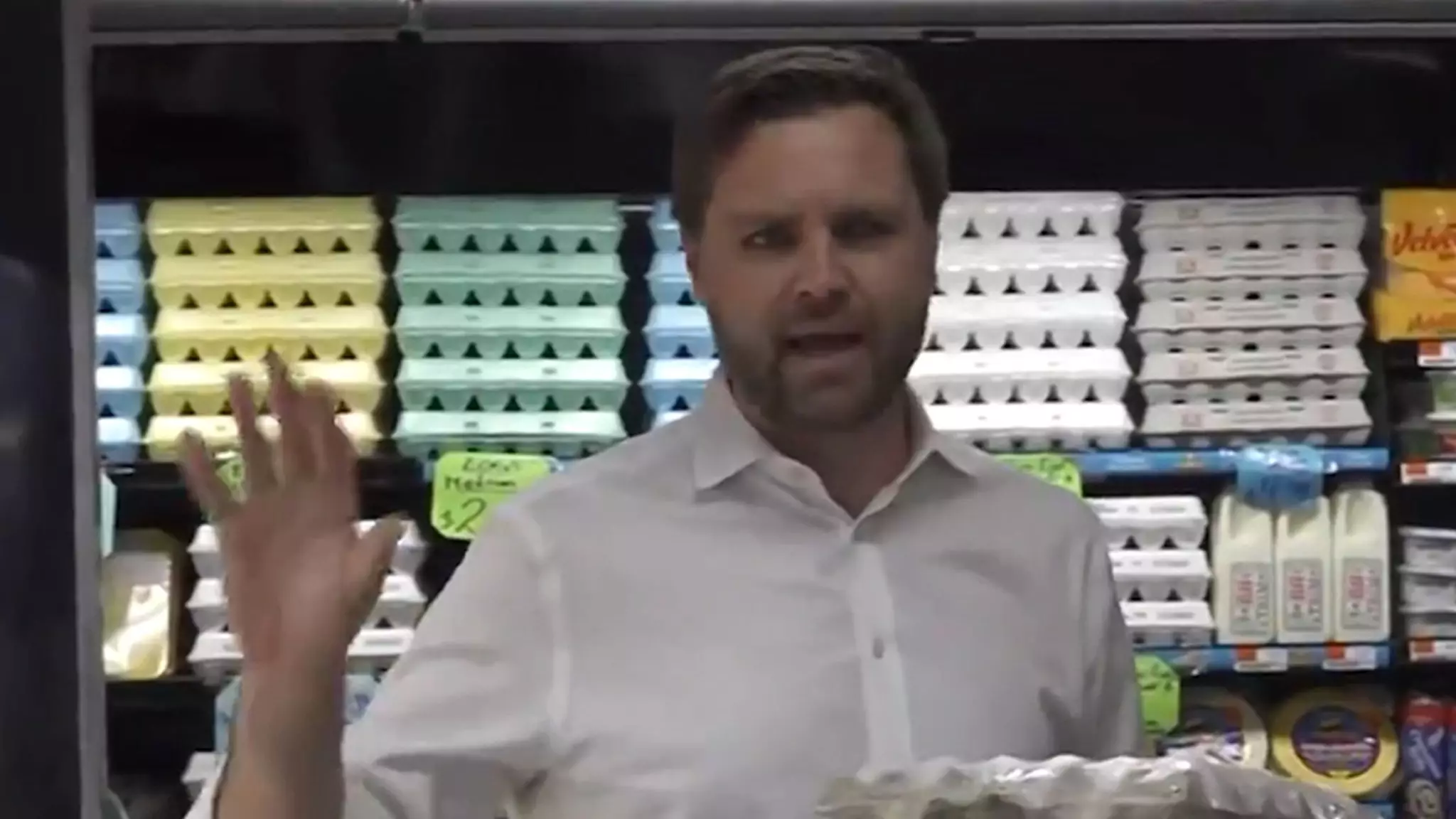J.D. Vance, Ohio’s Senator and a potential running mate for Donald Trump, recently found himself in hot water over a grocery store encounter that has garnered significant attention. During a visit to a grocery store in Reading, Pennsylvania, Vance voiced his frustrations about rising grocery prices, particularly focusing on the cost of eggs, which he directly attributed to Vice President Kamala Harris’s influence over the Biden administration. This rhetoric, however, quickly spiraled into public scrutiny, illustrating the pitfalls inherent in political engagements and the delicate nature of price-related narratives in today’s social media environment.
The crux of Vance’s controversy stemmed from his claim that a dozen eggs cost $4 due to Harris’s policies. Eyewitnesses and social media sleuths were quick to counter this assertion, noting that the price at the store was actually $2.99 per dozen, which several signs clearly indicated. This discrepancy not only undermined Vance’s credibility but also incited accusations of deceit aimed at riling up constituents. While it is true that egg prices in Pennsylvania reached an average of nearly $5 in 2023, the reality of Vance holding a two-dozen carton further complicated his narrative and led observers to question his awareness and sincerity regarding basic consumer prices.
In a bid to personalize his message, Vance mentioned that his family consumes an astounding 14 eggs every morning. This anecdote led to further skepticism, as it far exceeds dietary recommendations, which typically suggest a moderate intake of 3 to 4 eggs per week. This embellishment may have been intended to illustrate high consumption and the impact of rising costs on families, but it inadvertently cast doubt on his credibility and understanding of nutritional guidelines. The perceived disconnect between his anecdotal account and common dietary practices highlights a potential communication gap within his political framework.
The fallout from Vance’s grocery store encounter is reminiscent of earlier public missteps, such as his awkward donut shop interaction in Georgia. In that instance, Vance’s introduction to an employee and vague ordering garnered criticism, showcasing a pattern in his public engagements that raises questions about his relatability and connection with average Americans. These gaffes can have detrimental implications for a political figure, particularly one aligned with a high-profile presidential candidate, as they risk alienating constituents who seek authentic engagement rather than scripted rhetoric.
Vance’s recent experience underscores the importance of accuracy and relatability in political outreach. As American consumers grapple with fluctuating prices and economic uncertainty, politicians must exercise caution in their discourse, ensuring that claims are not only factual but also resonate authentically with the public. If Vance wishes to maintain relevance in the ever-evolving political landscape, he must refine his public approach, avoiding pitfalls that could misrepresent his message and lead to backlash. The stakes are high, and continuous miscalculations could derail his ambitions in the 2024 election cycle.

